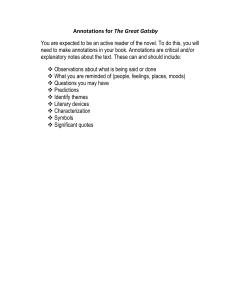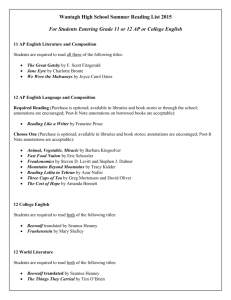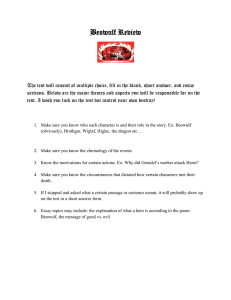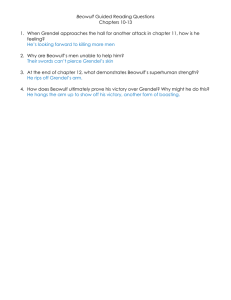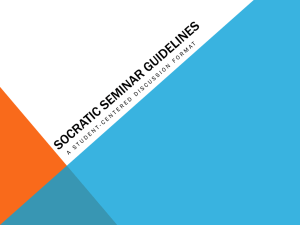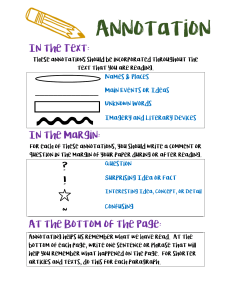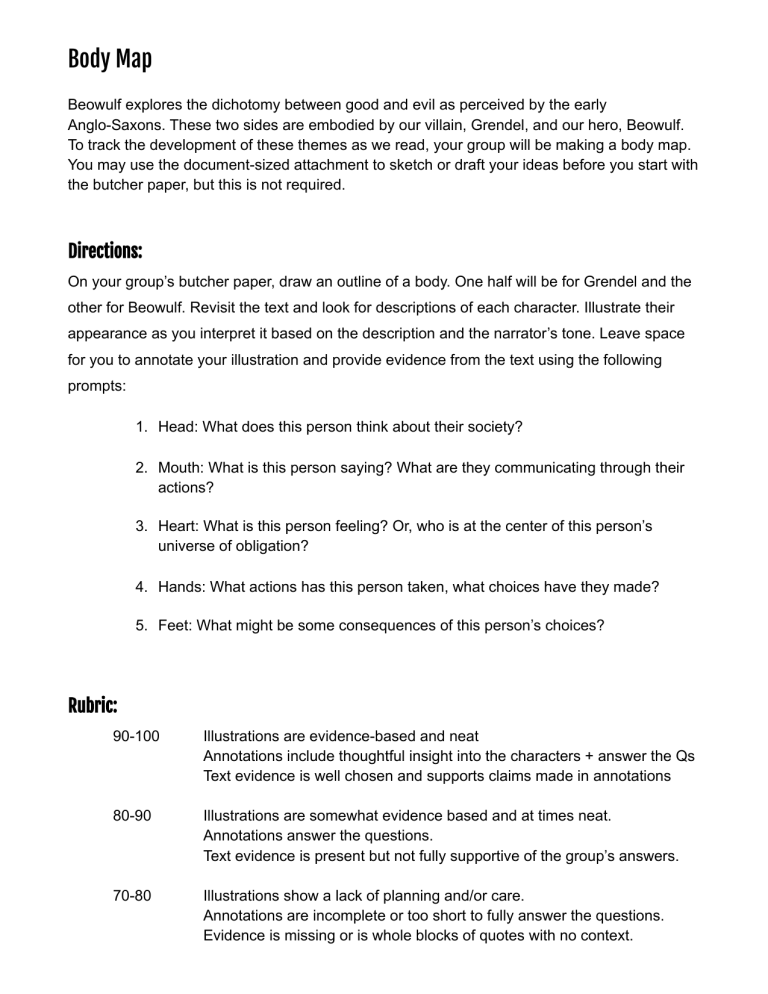
Body Map Beowulf explores the dichotomy between good and evil as perceived by the early Anglo-Saxons. These two sides are embodied by our villain, Grendel, and our hero, Beowulf. To track the development of these themes as we read, your group will be making a body map. You may use the document-sized attachment to sketch or draft your ideas before you start with the butcher paper, but this is not required. Directions: On your group’s butcher paper, draw an outline of a body. One half will be for Grendel and the other for Beowulf. Revisit the text and look for descriptions of each character. Illustrate their appearance as you interpret it based on the description and the narrator’s tone. Leave space for you to annotate your illustration and provide evidence from the text using the following prompts: 1. Head: What does this person think about their society? 2. Mouth: What is this person saying? What are they communicating through their actions? 3. Heart: What is this person feeling? Or, who is at the center of this person’s universe of obligation? 4. Hands: What actions has this person taken, what choices have they made? 5. Feet: What might be some consequences of this person’s choices? Rubric: 90-100 Illustrations are evidence-based and neat Annotations include thoughtful insight into the characters + answer the Qs Text evidence is well chosen and supports claims made in annotations 80-90 Illustrations are somewhat evidence based and at times neat. Annotations answer the questions. Text evidence is present but not fully supportive of the group’s answers. 70-80 Illustrations show a lack of planning and/or care. Annotations are incomplete or too short to fully answer the questions. Evidence is missing or is whole blocks of quotes with no context.

